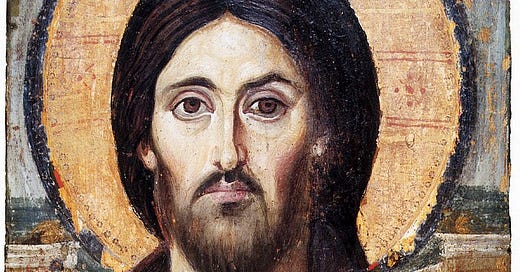Episode Fourteen: The Church and the culture wars
Of all the grimly fascinating things about the Church of England, my favourite is the co-existence of two Very Online Anglican-adjacent communities: one of angry young liberals, convinced it is misogynistic, homophobic, and altogether bigoted, and another of angry young conservatives, convinced it is wet, spineless, and has given up the Gospel altogether in favour of modern social mores. While of course the Church of England contains multitudes and many of its churches do fit one or other of these descriptions, most do not, and in any event people tend to level their criticisms at the institution as a whole, not their local parish church. Of course, both can’t be true at the same time.
The Archbishop of Canterbury, Justin Welby, often becomes a lightning rod for criticism from both camps. You can fairly criticize him on many grounds: not an especially inspiring preacher, not a great theologian, nor a great student of the Fathers, overly ready to try and run the Church like a business. All of those have some truth to them. But the notions that he’s some raging bigot or a spineless wet are just hopelessly wide of the mark. He’s an evangelical of a certain era, perhaps a bit more liberal than many of the people he was formed alongside, who takes the faith very seriously, but is not a doctrinaire “conservative evangelical” of the Jesmond Parish Church type.
More importantly, Justin Welby - and the Church of England more broadly - are trying to do ministry to the whole nation. It is the Established Church. This comes with a responsibility to try and do ministry to everyone, no matter their convictions, and as a result the C of E tries desperately hard to avoid becoming identified too closely with one side or the other of the culture wars. In my experience, no matter what idiotic political commentary clergy give on twitter (and I wish they wouldn’t), in the pulpit they are generally more restrained and tone it down a lot (exceptions do exist). We have a responsibility to hatch, match, and dispatch the whole nation, no matter how little they come to church on Sundays. Increasingly, of course, we are failing at even doing that, but the legal responsibilities to wed and bury are still there.
Things are different for other churches. The Roman Catholic Church has no responsibility to those outside its own faithful, which means that although it no doubt would like to be viewed neutrally as well, at the end of the day, if the masses perceive the RCC as red-tribe, well, so be it. But matters are very different for the C of E.
Unlike the RCC, it not only has some kind of responsibility to the unbaptized, but in its role as the Established Church, it also represents all the other Churches and faiths to the State, ranging from very liberal denominations (the United Reform Church, the Methodists), to much more conservative groupings (British Islam, the Roman Catholic Church). Bishops in the Lords do not speak for their own faith only, and by and large I think they understand this role and take it seriously. The importance of spiritual leadership that reaches across religions is why Prince Charles rightly understands he must be “Defender of Faiths”, the guarantor of traditions beyond the Anglican, sacral kingship re-imagined for a multi-faith era.
But in an era of relentless polarization, the C of E’s increasingly painful act of principled fence-sitting may win it no friends, as every aspect of life becomes reformed by the culture wars, from your workplace to your local knitting club. And yet I wonder if, in a decade or two, it might come to be perceived as a virtue. As every other cultural space becomes overtaken by hysterical politics, the Church may begin to appeal as a last refuge where things matter other than the passing concerns of today. There exists, of course, a large constituency of quite apolitical young men, who today find the spiritual life of almost no interest at all, but who might become quite fertile mission territory in the future. Deano doesn’t go to church, but nor did his father, and much work would have to be done to restore the connection between the ancient faith and those who dwell outside the Church’s upper-middle-class bubble. At the moment, we aren’t doing any missions to the newbuilds, but in God’s time, who can say what fruits such an endeavour might yield?



